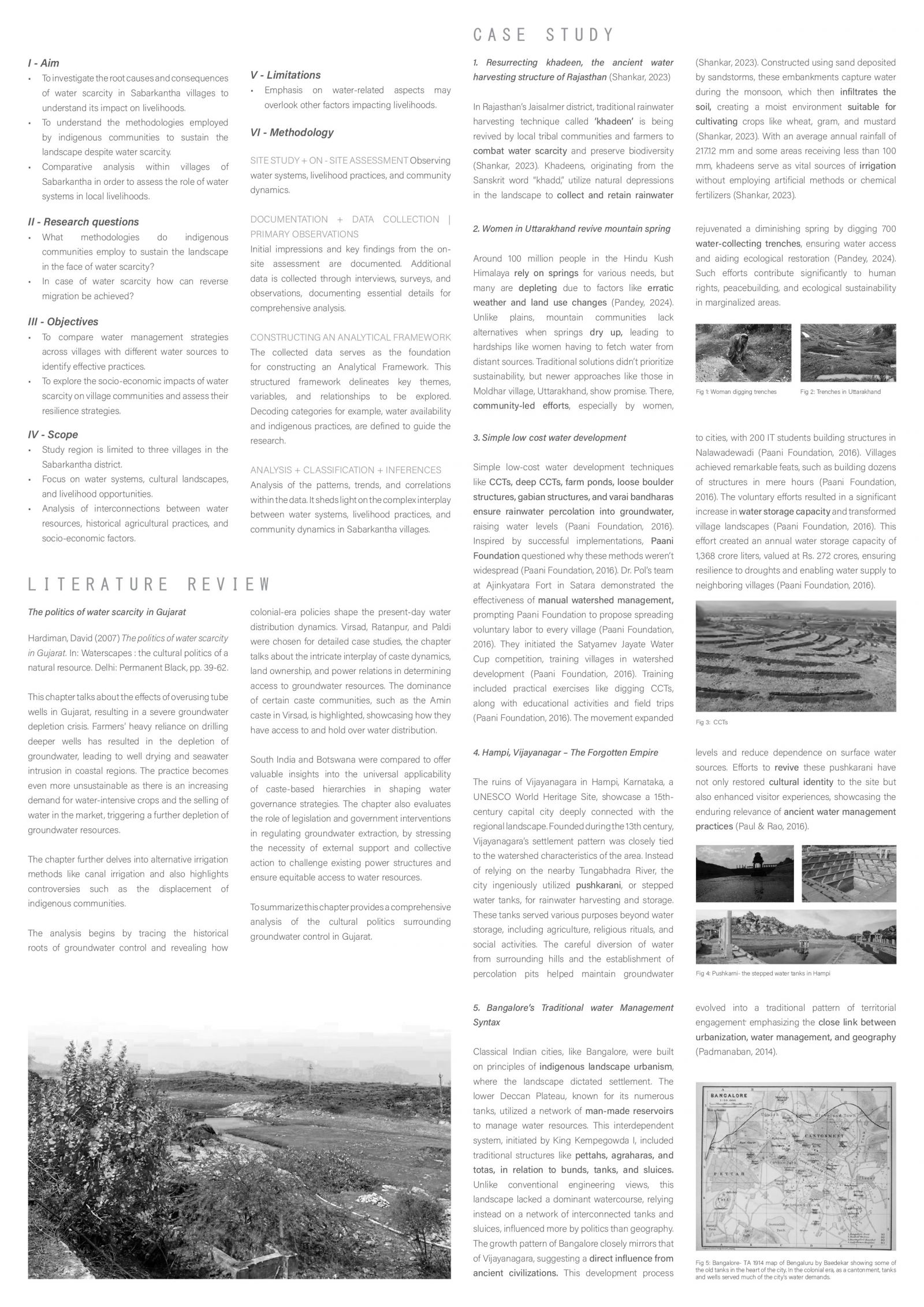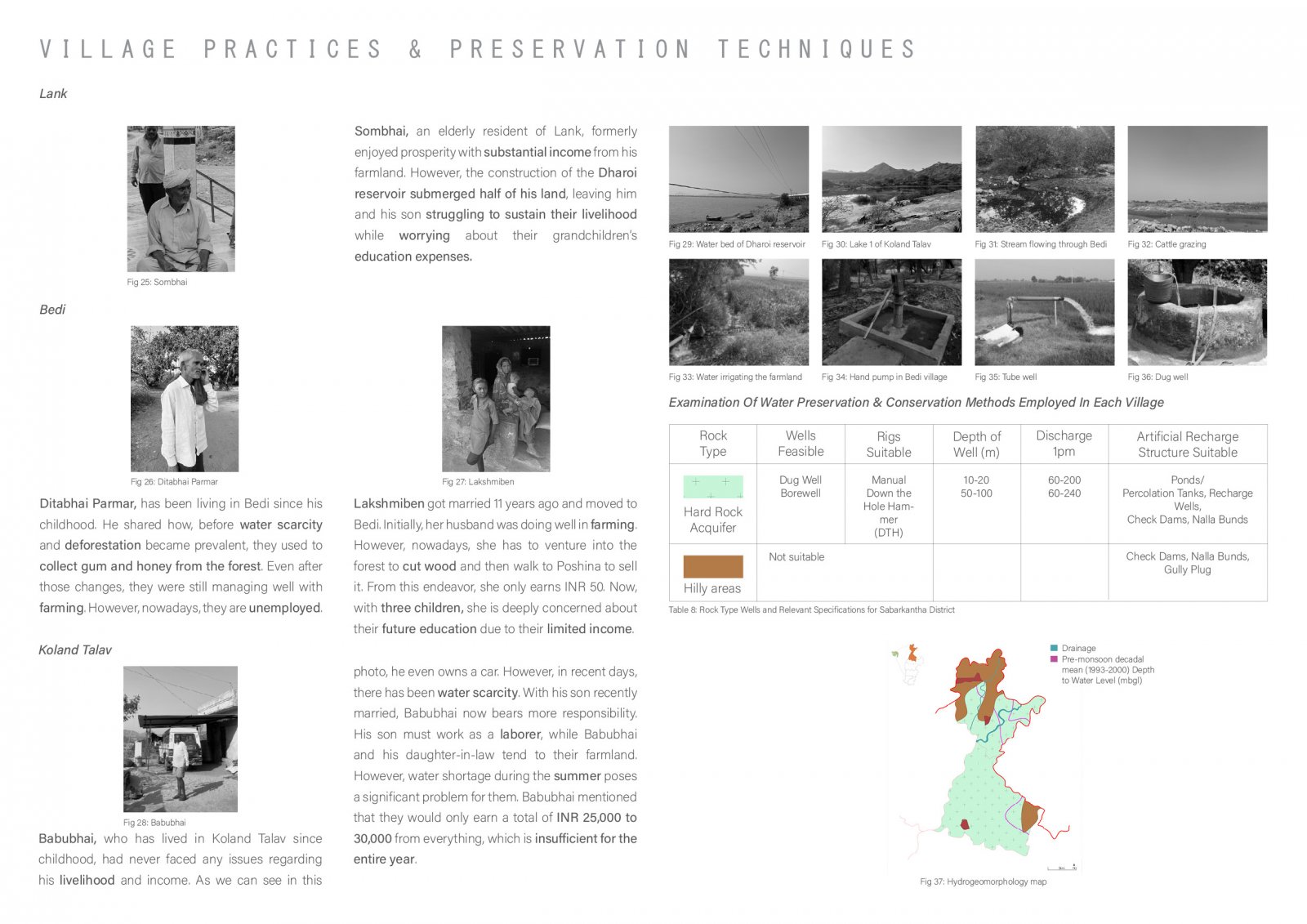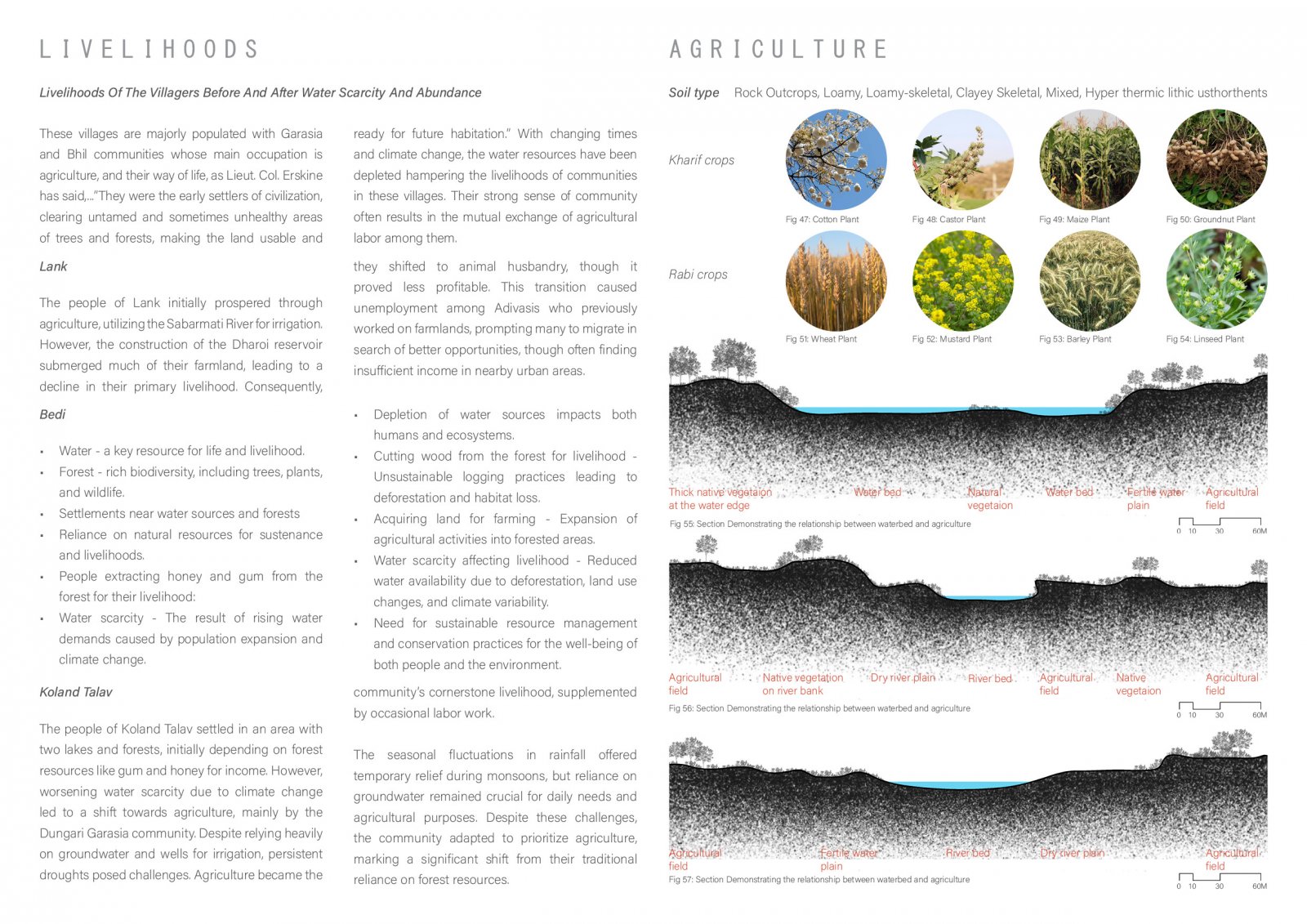Your browser is out-of-date!
For a richer surfing experience on our website, please update your browser. Update my browser now!
For a richer surfing experience on our website, please update your browser. Update my browser now!
Abstract: The DRP investigates the relationship between water systems and the local livelihoods of the people of Sabarkantha. The villages are selected based on the contrasting water resource scenarios ranging from man-made resources to reliance on natural water bodies or facing water scarcity in remote regions.
The study attempts to reveal the complex effects of water resource utilization and management strategies on community sustainability and well-being through careful investigation. A particular focus is on agriculture and examining traditional farming methods.
The study further explores the past farming practices and the way of life used by the local tribal groups before the onset of civilization. The study traces the development of agricultural practices to contextualize the shift to the present and investigate the opportunities for improving livelihoods in the face of climate change. Through a historical lens, the DRP aims to understand water management’s cultural and economic implications in maintaining traditional ways of living. These have been essential for maintaining conventional ways of life, which are now under immense strain.
Additionally, the DRP examines these settlements’ conservation and preservation strategies, offering insights into their adaptability to shifting environmental circumstances. This comparative method provides insightful information about indigenous water management techniques and their wider effects on sustainability and community resilience in Sabarkantha.









